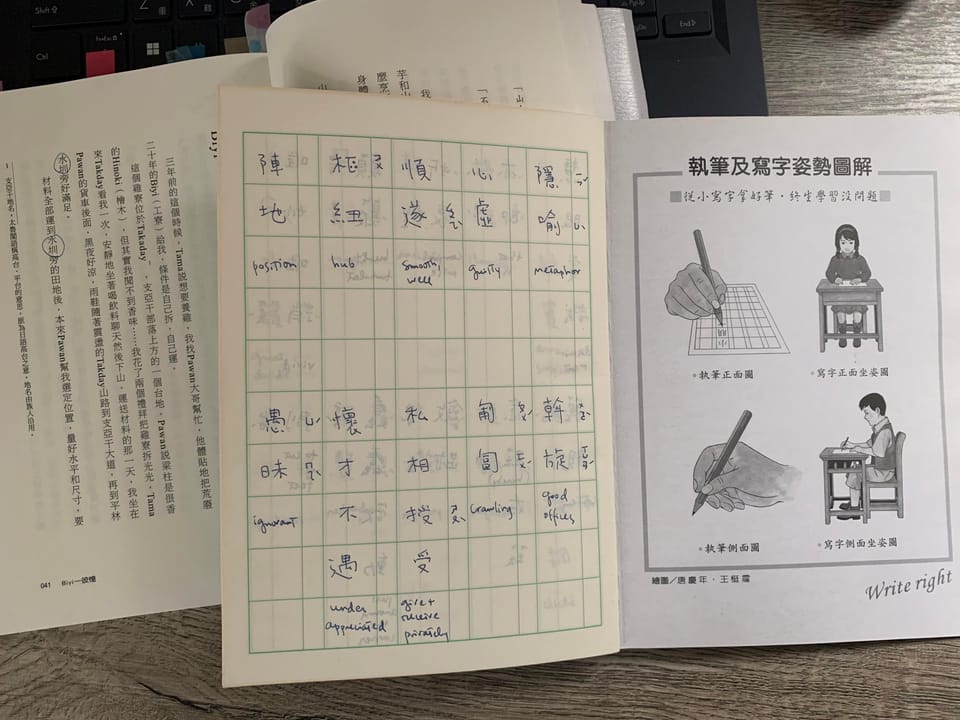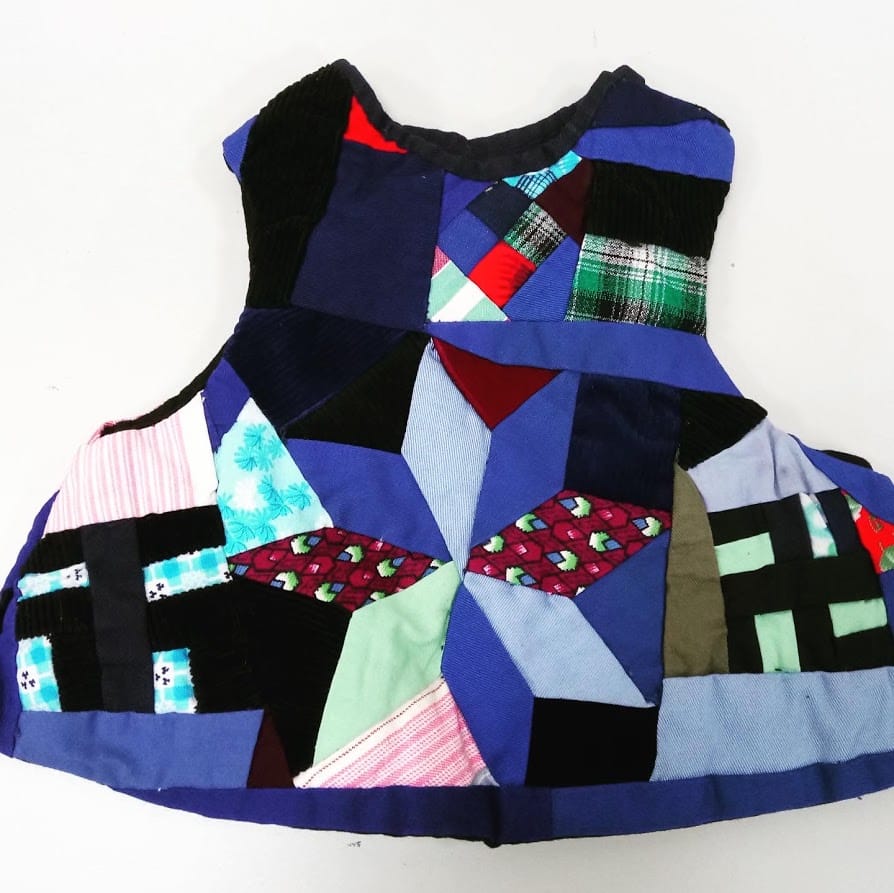How translating is like love

I fell into translation the same way I fell in love with my husband – without expecting to and wholeheartedly. Both experiences were so embodied, I appropriately (or ironically?) did not have the words to translate what was happening. When I met my husband, I was 20 years old, too busy soaking in the world to be looking for love. And yet, there he was. By the end of the summer, I knew something seismic had just shifted in the terrain of my life, but I couldn’t name it, because it was that startling, that new.
Without intending it to be, translation has always been a parallel practice to my writing. My mother started collecting 19th-20th century children’s textiles from China, Taiwan, and Southeast Asia when I was in high school. When I left Taiwan to attend college in the US, she would send me bits of writing about her collection for me to translate from Mandarin into English. Because she has a collector’s mind, my mother is also the unofficial curator of our family archives. In addition to translating her writing, she would also send me short essays and articles that my grandparents had written for me to translate for my cousins, who had all grown up in the US, and the vast majority of whom don’t read or write in Chinese.
The first time I took on a translation project of my own was after I'd read Apyang Imiq's book of essays 我長在打開的樹洞. It's a story of homecoming, of realizing that returning is not simply an opposite trajectory, or a reinstatement of what once was, but a continual practice in relearning, revisioning, rebuilding. Apyang is Truku, and homecoming for him meant learning to farm, to hunt, to speak Truku, to commune with his tribal elders. Like him, I had recently returned home after a 20-year absence, and though my return was to the city in which I grew up, and lacked the tactility of his return to the earth, his writing shook me in a way I couldn’t explain. I am an eager and emotional reader and can be ferocious about my marginal notes, but this was a reading experience unlike any other I’d had. I felt I needed to nestle even more deeply into the text.
And so I started translating Apyang’s writing. I did it without an intended audience, without an agenda, slowly and page by page each morning with a Chinese dictionary on one side of my desk and a vocabulary notebook on the other side and Apyang’s book laid across my laptop in the middle. Before I knew it, I had finished translating the entire book.
In Latin, translatio means to "bear across." People often think of translating as a bridge between two languages – that there is a point of origin (the “source language”) and a destination (the “target language”) and the translator acts as the metaphorical bridge between the two. But more and more, as the work of translation is now regarded not merely as a tool, but an art in and of itself, we are beginning to appreciate how the act of translating is not so much looking for linguistic equivalents, but an exercise in interplay, in making visible and alive all the connections that exist in the world – both verbal and otherwise.
Because language is, in fact, so much more than just words. It is culture, history, and politics. It is context and time. What I learned from translating Apyang’s book is that language – in general, and translating in particular – is a physical, bodily thing. When you learn a language, you must consider all the non-verbal bodily and expressive cues to fully understand and embody its meaning. You cannot just bear across when you translate, you have to be inside, commit to being in the strands of meaning that are intertwined and exist on a plane that ultimately transcends words.
That is how the art of translation is like falling in love. What art does is it makes new again that which we have taken for granted: a photograph that reframes an ordinary object, a portrait that highlights a woman’s mysterious smile, a poem that elevates the mundane, a translation that moves – not across, but within.
In writing news, I'm excited to share that an essay from the book I'm writing will be forthcoming in Seventh Wave Magazine's June issue. More on the process of working with this incredible writing community soon.
